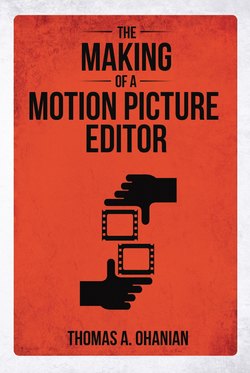Читать книгу The Making of a Motion Picture Editor - Thomas A. Ohanian - Страница 17
На сайте Литреса книга снята с продажи.
ОглавлениеJim Clark
London, England
Partial Credits: Happy-Go-Lucky, Vera Drake, Kiss Kiss (Bang Bang), The World Is Not Enough, The Jackal, This Boy's Life, The Mission, The Killing Fields, Marathon Man, Charade, The Innocents.
It was difficult for Jim to speak on the phone and easier to respond via email. Relive the suspense of The Jackal, Marathon Man, the sheer delight of Charade. In Jim’s words, “You have to invest a lot of your soul in the work.”
TO: Jim, you are an Academy Award and BAFTA recipient for Best Editing for your work on The Killing Fields. Are there films that you edited that did not get the attention they deserved?
JC: Day Of The Locust is a film that was buried due to commercial failure and has a lot of visual riches within it.
TO: You edited The World Is Not Enough. Is there a different form of pressure you feel when you are editing a film that has a significant legacy—such as the James Bond films?
JC: The James Bond films are made within the confines of an ever-developing formula born of enormous financial success. One always feels a pressure with any film but with Bond there were so many precedents to adhere to.
TO: Did you ever feel that there were scenes that you had so much difficulty with that you had to leave them until the time was right for you to work on them?
JC: I've always tried to deal with difficult scenes as they come up but sometimes one is overwhelmed and the pressure you refer to in your previous question is a constant factor in putting a finished movie together. There were several scenes in This Boy's Life where I was constantly banging on to the director that they needed attention and it was he who put off dealing with them. In some instances scenes have to be reshot which, of course, is very expensive. We had to do this on The Mission and, in my opinion, never quite succeeded.
TO: Was editing The Killing Fields emotionally difficult for you or are you able to develop a distance between the material and yourself?
JC: Editing any movie is emotionally draining. You have to invest a lot of your soul in the work. The main problem with The Killing Fields was making the storyline coherent and in the early stages of shooting, getting enough coverage for the scenes. Of course on that film I also had to overcome a prejudice the director had against me as I was cutting in London while they were shooting on the other side of the world and David Puttnam had instructed me to say what I thought of the rushes coming back. It wasn’t until I went out there and met with Roland Joffe that he began seeing me as a collaborator rather than a threat.
TO: Who are some of the film editors you admire and why?
JC: Artie Schmidt, Michael Kahn, and Sam O'Steen. Each film is its own world and though I admire the work of many editors, we all have our failures and successes. We can only function if we’re given good material to work with.
TO: What advice would you give someone who wanted to be an editor?
JC: Study every aspect of film making as a good editor must pull all the elements, visual and audio, into a totality, which serves the story being told.
